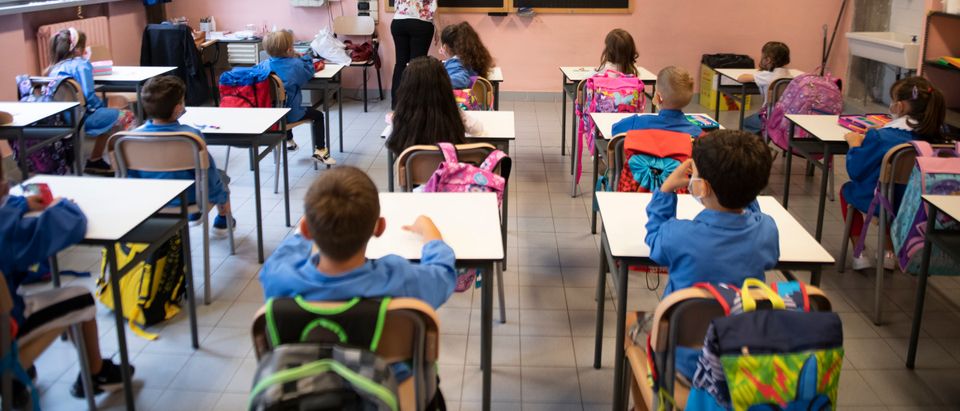How do two highly effective-rated, public school teachers make the call to homeschool their kids? It wasn’t an immediate decision, though now that we’ve made that choice, we couldn’t be more excited to begin. Though every family is different, and homeschooling isn’t something that should be entered into lightly, the following are our reasons for making the jump (and not looking back).
First and foremost, my wife and I were struck with the lack of education that takes place during most of the day in public schools. In almost all public schools, most of the six-to-eight hours spent in the building are wasted on waiting. Students wait for others to finish. Students wait in lines to move between rooms. Students wait in line for the bathroom. Students wait through lunch. We estimate that fewer than 2-3 hours per day are actually spent learning. This fits with the research we’ve done with homeschool families, who claim that their students finish daily assignments and lessons in about 2.5 hours. The rest of the day can be devoted to creativity, extra remediation, leaping ahead, housework, skill development or educational trips.
Of course, a large reason we look forward to homeschooling is the opportunity for individual instruction. Large classes are universally shown as ineffective compared to small-group or one-on-one lessons. We’ll be able to spend our time with our children effectively, focusing on skills needed to improve. I won’t have to put her on hold for 25 other students or force her to set her learning aside for other students’ advances or mediocrity.
As a STEM educator, I’ve been told constantly that educating children on reading and writing is impossibly difficult. Thousands preen online over how terribly hard it is to teach reading. That said, through my own research into reading instruction, I’ve found its difficulty is remarkably overblown. Homeschooling parents like Kemi Ingrham and Bethany Mandel report that using proven methods from an exceptionally early age resulted in their children reading at a second-grade level (at least) by age four. Furthermore, homeschool curriculum often focuses on phonics and spelling, often abandoned in large public school districts who view these foundations of reading as antiquated and discriminatory.
Indeed, encouraging our children to read classical literature and other works at her specific reading level instead of restricting her to a class average and workload is a benefit in and of itself. Many schools and communities through groups like the Classical Learning Test have shared countless stories of elementary students reading Tolkien and Twain. Colleges and universities bend over backwards trying to persuade these students, showing an incredible skill marketability in students of these methods.
Honestly, I don’t find the idea of my kids immersed in public school culture particularly enticing. With the lack of discipline and accountability becoming the standard, I don’t trust almost any public school to keep my children safe or report concerns that they see with me. Public school counselors withhold information from parents far too often, and violent students sent out of class wind up back in the room next to the victim just moments later. Additionally, we have found that the curriculum and pedagogy in many Indiana schools have become woefully inadequate. Several Indianapolis schools have adopted empirically false historical curriculums like Howard Zinn’s “A People’s History of the United States” and Nikole Hannah-Jones’s “1619 Project.” Regardless of political opinion, it does not create a foundation of trust in the community when a school district chooses a historical narrative over accurate history curriculum and pedagogy.
Perhaps the biggest reason we’re choosing to homeschool our children is our disenfranchisement with the staff in public schools. Many teachers, administrators and counselors have lost sight of why we teach. Some have become so engrossed with being “liked” by their students that they forgo character-building instruction for the social posturing that has become so popular. Math teachers have placed calculation and function on the back burner for class lessons about “ethnomathematics.” Science teachers are abandoning the laws and theories that govern nature for group projects on “environmental racism.” The standard for public education in Indiana and the greater United States has sunk to a woeful low.
In essence, we choose to homeschool our daughter because she’s our kid. We’ve seen the effects of public education in schools we’ve taught and administered on too many students to consider it an anomaly or a misunderstanding. The methodology of classical education is sound and produces excellent results. We don’t have to worry about a case of sexual assault and the school refusing to take action. We can go to sleep at night knowing exactly what our kids are successful in and are struggling with — and that’s something my wife and I look forward to!
Anthony Kinnett is a curriculum developer and coordinator in Indianapolis. He is the co-founder and owner of The Chalkboard Review and has written for National Review, The Federalist, The Daily Caller, and the Washington Examiner. @TheTonus












